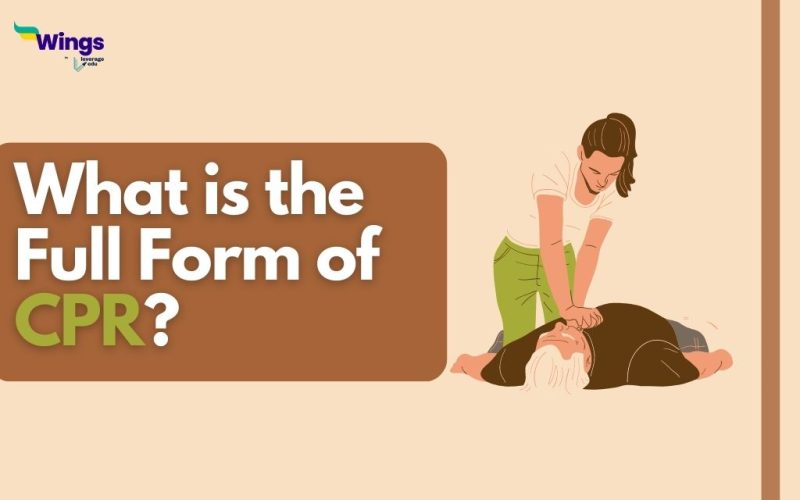The full form of CPR is Cardio-Pulmonary Resuscitation. Cardio and Pulmonary stand for ‘heart’ and ‘lungs’ respectively, whereas Resuscitation means ‘To Revive’. This is an emergency technique used when a person is experiencing a heart attack or cardiac arrest. Heart failure, suffocation, drowning, electrical shock, and other conditions can all cause cardiac arrest. The CPR procedure must include both chest compressions and mouth-to-mouth breathing.
Additionally, rescue respiration delivers oxygen to the person’s lungs while chest compressions keep the blood moving with oxygen until the heartbeat and breathing return.
Table of Contents [show]
Importance of CPR
If the blood supply is cut off, permanent death or brain damage will occur swiftly. Therefore, it is crucial to maintain breathing and blood circulation until appropriately qualified medical assistance arrives. CPR can be used to keep the blood flowing
- Anyone who meets the necessary requirements can conduct CPR, which comprises external chest compressions and respiratory support
- CPR can keep a person alive until help arrives if it is administered during the first six minutes after the heart stops
- The patient receives CPR until either their heart rate recovers to normal or they are declared dead
Safety Measures of CPR
Now that we know the full form of CPR, and its importance, let’s look at the safety measures of CPR. Before doing CPR on the patient, there are a few factors to consider:
- To conduct CPR, make sure the area is secure enough
- Determine the patient’s level of consciousness
- Request emergency medical attention as soon as you can
Reasons Why You Should Learn CPR
Below mentioned are some of the reasons to learn CPR:
- A person who is a non-doctor can also learn CPR. A person can easily learn this procedure from an accredited institute or any medical expert
- You can save your loved ones. Having knowledge of performing chest compressions and mouth-to-mouth CPR, can save a family member from a possible heart attack
- Knowing CPR can also help prevent brain damage
Must Read: What is the full form of AIDS?
FAQs
Check the scene, call emergency services, check for breathing.
Start chest compressions: 100-120 per minute, push hard and fast.
Give rescue breaths: two breaths after every 30 compressions.
CPR stands for Cardiopulmonary Resuscitation. It’s an emergency procedure to revive someone whose heart and breathing have stopped.
Stop CPR when:
The person shows signs of life (breathing, movement, talking).
Trained medical professionals take over.
You are physically exhausted and unable to continue.
The scene becomes unsafe.
Death is apparent (rigor mortis, no pulse, no breathing).
Find Related Reads Here!
We hope that you understand what is CPR and why it is so important at any moment in life. You have to be no expert in saving someone’s life but yes it is necessary to have a correct idea to perform it. For more such articles, visit our page!
 One app for all your study abroad needs
One app for all your study abroad needs















 45,000+ students trusted us with their dreams. Take the first step today!
45,000+ students trusted us with their dreams. Take the first step today!
